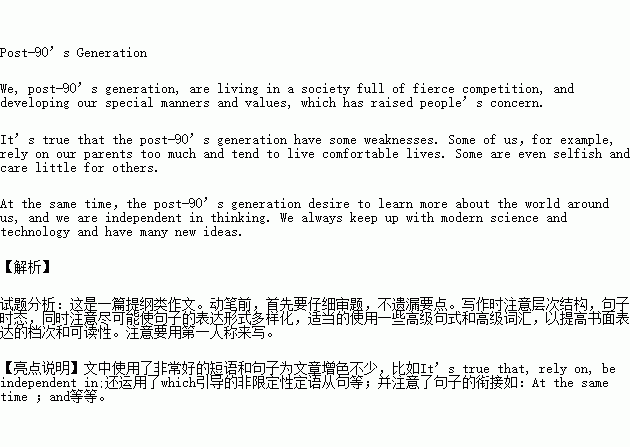题目内容
书面表达
你在网络上读到一篇关于“九零后”的英语文章,你打算以“Post-90’s Generation”为题,用第一人称给《二十一世纪英文报》写一篇文章,内容包括:
“九零后”的缺点:
1. 依赖性强;2.自私;3.贪图过舒适的生活等
“九零后”的优点
1. 渴望了解周围的世界;2.思想独立;3.有很多新观念等 你自己的感受……
注意:
1. 必须包括表格中的所有内容;2. 为了使文章通顺完整,可以适当增加内容;3. 词数:120左右。
________________________________________________________________________________
________________________________________________________________________________
________________________________________________________________________________
练习册系列答案
 阅读快车系列答案
阅读快车系列答案
相关题目

